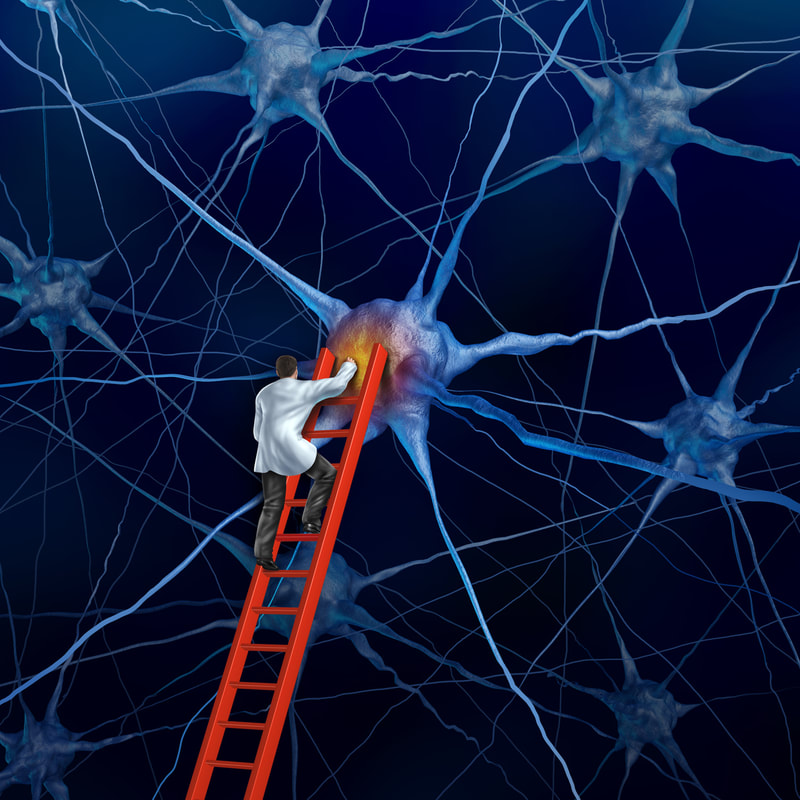|
(https://www.theatlantic.com/magazine/archive/2016/07/when-the-body-attacks-the-mind/485564/)
Just a few key highlights in this enlightening piece: - "Doctors can now treat people who would have been given up for lost and locked away." - "Subsets of depression, schizophrenia, and bipolar disorder may be somehow linked to problems in the immune system." - "A recent retrospective study by scientists at the Mayo Clinic, a center of research on autoimmune neurological conditions, found that compared with a control group of healthy people, psychiatric patients were more likely to harbor antibodies directed at brain tissue." - “Psychosis is like a fever…it’s a symptom of a lot of different illnesses.” Since the article’s writing in 2016, even more evidence has been attained that further shifts the paradigm of our understanding of immune-mediated changes to the brain in mental illness and in neurodegenerative diseases such as: multiple sclerosis (MS); Alzheimer’s disease (AD); amyotrophic lateral sclerosis (ALS); Parkinson’s disease (PD); autoimmune encephalitis (AE); and even autism. The “brain on fire” analogy very much provides an accurate and easily visualized idea of what occurs with intense immune activation in the brain and the resulting plethora of symptoms and conditions. In the last several decades, a growing body of evidence has revealed an intricate cross talk between neurons and immune cells to maintain brain homeostasis. Yes, the brain has its own immune system and, no, the blood brain barrier is not as impenetrable as we once thought decades ago. Then within the last decade there was an astounding discovery (https://elifesciences.org/articles/29738) of the brain’s own LYMPHATIC system — a key part of our body's immune system — finding lymphatic vessels in a membrane that surrounds the brain and nervous system. These vessels carry a clear fluid called lymph, which contains both immune cells and waste products. Think of this system as the brain's own waste disposal service eliminating all the things (bacteria, viruses, fungi, toxins, chemicals, etc.) that should not take up residence in our head. We know too that this drainage and immune-regulating system is working hard when we sleep. The brain's “housekeeping” activities take a great deal of energy so getting the job done while we sleep is an ideal time to accomplish this. And it also points to the importance of getting the best quality sleep possible for our brain health! The next big discovery in the last decade has been the role of the microglia cells, which are the brain's own resident immune cells. Until recently, the brain and the spinal cord were considered immune-privileged sites, strictly cordoned off from immune cells unless something went terribly wrong. But over the past two decades, researchers have recognized that the entire immune system is very much a part of a functional central nervous system (CNS), with vital roles in cognition, injury repair, neurodegenerative disease, and sensory systems. Microglia act as the brains first responders and upon detection of trouble, these cells mount specialized responses, destroying pathogens and calling for help from other cells via signaling molecules called cytokines. They are also involved in synaptic pruning that ensures the right neuronal connections are maintained. These vitally important brain cells are distributed more or less uniformly throughout the adult brain, in both white and grey matter, but in varying densities with the highest concentrations appearing in parts of the brain stem (the substantia nigra), parts of the reward circuit of the brain (the basal ganglia), and the hippocampus. The microglia are essentially our biologic support team that’s always there and always working to keep the brain healthy and well. But sometimes they can also become part of the problem in maintaining brain health. Immune Response out of Control. Evidence has shown that upon activation microglia can cause deleterious effects on neuronal cells by various routes including releasing reactive oxygen and nitrogen species, cytokines, chemokines, and other inflammatory mediators. If their synaptic pruning gets derailed then destroying too many or too few synapses will be very detrimental. These factors are all the fuel for the brain on fire. The dying neurons in turn release more stimulatory factors, which exaggerate the activation of microglia. This vicious cycle contributes to the pathogenesis of neurodegenerative diseases and neuropsychiatric disease such as depression, bipolar disorder, anxiety disorders, ADHD, and even schizophrenia. What Causes this Out of Control Immune Dysregulation? It is the highly toxic environment in which we live in today that is driving the immense immune dysregulation that may affect microglia’s ability to find and destroy the appropriate synapses, potentially leading to neuropsychiatric conditions such as schizophrenia or neurodegenerative diseases such as Alzheimer’s. We can see that the tides have changed in the understanding of mental and neurological illness, thanks in part to consumer publications like The Atlantic that have brought to the attention of more people the need to continue focusing on these issues – and the fact that it is the derailed immune system that must be attended to for ultimate brain health. It is our hope too that with this expanded awareness, we can better identify the root causes of more conditions and see treatment options increase for those adult and pediatric patients who in the past may not have been helped. In health and hope for healing, Dr. Suzy Gazda For additional information: https://www.ncbi.nlm.nih.gov/pmc/articles/PMC3528177/ Microglia Sculpt Postnatal Neural Circuits in an Activity and Complement-Dependent Manner http://news.emory.edu/stories/2015/11/brain_imaging_depression_felger/index.html Inflammation linked to weakened reward circuits in depression https://www.hindawi.com/journals/jir/2013/608654/ Microglia in Psychiatric Disease Lucin, K.M. & Wyss-Coray, T. (2009). Immune activation in brain aging and neurodegeneration: too much or too little? Neuron, 64(1), 110-122 Ransohoff, R.M. & Perry, V.H. (2009). Microglial physiology: unique stimuli, specialized responses. Annual Review of Immunology, 27(Journal Article), 119-145.
0 Comments
Your comment will be posted after it is approved.
Leave a Reply. |
AuthorDr. Suzanne Gazda, Integrative Neurology Archives
February 2024
Categories |

 RSS Feed
RSS Feed